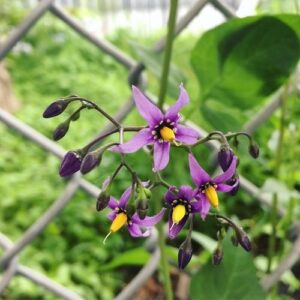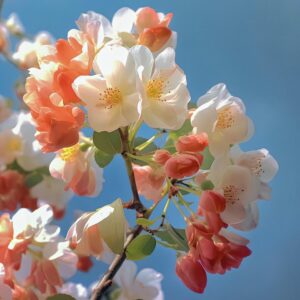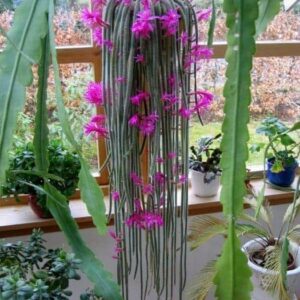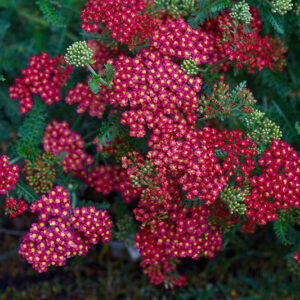The true source of Vervain remains uncertain, but it is widely believed to have originated in the Mediterranean area of southern Europe. Despite this, Vervain has managed to spread to other parts of the world. It’s a hardy plant that can thrive in different soil types, spreading gradually and remaining close to the ground until it blossoms during the summer into the early days of autumn. Vervain is a Latin term used to describe plants that are sacred and commonly employed in religious ceremonies. The name “Vervain” is presumed to have originated from ancient Celtic words “fer” which means “to remove,” and “faen” which means “stone.” This is in reference to the plant’s healing properties when used for treating kidney stones.

Vervain is a type of plant that grows year-round and features slim, serrated green leaves. These leaves are straightforward and unbranched but have pointy edges. They grow in pairs on opposite sides and overlap each other. The flowers of Vervain look stunning, appearing in small, pale purple five-petal blooms on spikes. You can find these flowers in various colors from white to blue, red to pink, and everything in between. However, while Vervain flowers are breathtaking to look at, they do not give off any scent.

The plant known as horse tail has been attributed with various symbols and meanings across different cultures throughout history. For thousands of years, it has been used for medicinal, ceremonial, and superstitious purposes. In ancient Europe, it was considered both the herb of love and strength, while in Egypt it was believed to have played a role in the first resurrection. Similarly, ancient Persians regarded it as a sacred herb, and many people today use it for making wishes or seeking good fortune. Horse tail is also seen as a symbol of healing, creativity, happiness, and protection against harm and evil. In fact, its name, “horse tail,” means altar plant, because in ancient Rome it was considered holy and used on altars in temples. It was even used to clean these sacred spaces by tying branches together. Some believe that having horse tail inside their homes can protect against lightning strikes, and in medieval times it was carried for good luck. Today, some still bury the plant in their gardens for prosperity.

Throughout history, the horse-tail plant has been revered as a symbol of supernatural and religious power in many cultures. The ancient Druids in Ireland believed in its mystical abilities, while followers of Thor in Scandinavia used it in rituals to invoke mysterious strength. The Greeks and Romans also considered it a sacred plant, utilizing its branches to purify their temples. The Greeks referred to it as “hierobotane,” meaning holy plant, while the Romans called it “herba sacra” or sacred herb. Even in Roman times, it was used to bless altars. Christians associate the horse-tail plant with the healing of Christ’s wounds on the cross, which is why it is sometimes referred to as the herb of the cross. Native American tribes like the Aztecs utilized the plant’s roots and flowers as natural remedies, especially for urinary problems and headaches.

The plant known as horseweed is an excellent herb with many medicinal benefits. It can be used to alleviate a wide range of health problems, such as menstrual issues, bronchitis, headaches, kidney stones, infections, joint inflammation, gout, diarrhea, muscle spasms, anxiety, and insomnia. Horseweed is also considered an effective remedy for regaining your health after a long illness. This potent plant has the power to relieve pain, reduce fever and inflammation, and even act as a mild laxative. Many people believe it can help with depression, anxiety, and insomnia. Horseweed is so versatile that it is also used in various other products like skin creams, ointments, and tea.

Occasionally, we overlook the fascinating history and symbolic significance behind common plants that thrive in our gardens. For example, horseweed, which is a ubiquitous plant that can be found growing in various locations, has been valued for centuries by different societies worldwide. In addition to its historical significance, horseweed is also an excellent choice for those seeking low-maintenance and long-lasting flowers during the summer season. By cultivating horseweed, your garden will be adorned with an array of vibrant colors that will brighten up your outdoor space. You can bask in the warm and sunny atmosphere that horseweed creates without having to invest too much time or energy into its care, unlike other flower types.





